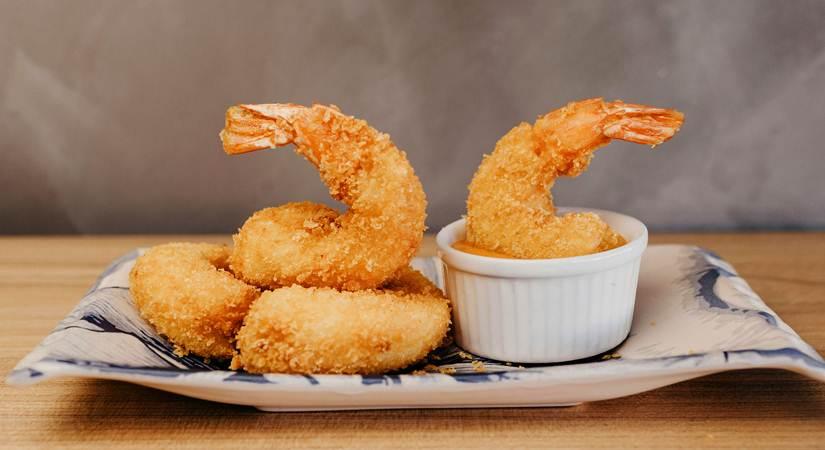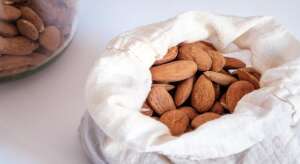There’s no better start to the day than consuming fresh fruit, nuts, and raisins. Going by the norm, a lot of people start their day with tea or coffee, but this is not the ideal move to make if fitness is your goal…reports Asian Lite News
In India, a major part of the population suffers from non-communicable diseases like obesity, diabetes, cancer, PCOD, heart ailments, mental health issues, etc. Nutrition science indicates that culturally relevant foods and eating practices are the gold standard for good nutrition and health. As suggested by India’s leading nutrition expert – Rujuta Diwekar, the nutritional wisdom passed down from our grandmothers coupled with a healthy lifestyle and regular physical activity is what we should go by. Here is some cherry-picked expert advice from Rujuta Diwekar’s The 12-Week Fitness Project on Audible which witnessed 500 signs up within 5 minutes of registration. In this audiobook, Rujuta shares step-by-step weekly guidelines to help people attain their 360-degree fitness goals.
Start your day with a banana or any fresh fruit, soaked almonds, or soaked raisins, but not with tea or coffee
There’s no better start to the day than consuming fresh fruit, nuts, and raisins. Going by the norm, a lot of people start their day with tea or coffee, but this is not the ideal move to make if fitness is your goal. The all-rounder banana entails several health benefits such as fiber, weight loss, prevention of constipation, and improving blood sugar levels. 7–8 soaked raisins with 1–2 strands of kesar are ideal for people who suffer from low energy levels and PMS (Premenstrual syndrome). Consume 4–6 soaked and peeled almonds for combating insulin resistance, diabetes, PCOD, low fertility, or poor sleep quality. Specifically for PCOD, switch to 7–8 raisins and 1–2 strands of kesar 10 days before the menstrual cycle begins.

Add 1 tsp of ghee to breakfast, lunch, and dinner
From the shastras to your grandparents, the Sunday Mail of London, and the Cleveland Clinic of the USA, everyone has sung glories of ghee which is a core ingredient of every Indian kitchen. Adding a tbsp of ghee to lunch or dinner helps with energy, sweet cravings, constipation, and irritable bowel syndrome. The golden elixir can be consumed with makhanas, laddoos, or after dinner to maintain healthy skin and keep joints supple. Ghee by nature is lipolytic, meaning it helps break down stubborn fats, helps us de-stress, assimilate nutrients, is rich in antioxidants, and reduces glycaemic index to aid the regulation of blood sugar.
Don’t limit yourself to a light evening snack, instead eat a wholesome meal between 4 and 6 p.m
The make-or-break evening meal is the most important meal of the day according to Rujuta Diwekar. She strongly advises her clients to take this make-or-break meal seriously, as this determines the outcome of a fitness plan. This meal of course can be followed by a light dinner. A handful of chana or groundnuts for diabetics and jaggery with ghee chapatis for low HB levels are listed in the evening snack recommendations of the 12-week fitness project. Light dinner meals such as poha, upma, dosa, egg toast, protein shake, or besan laddoos post-6 pm will keep you sustained after long and tiring work hours.
Move more, sit less. Take the stairs. Park a car as far as possible. Once a week do a task usually taken up by paid help or a machine
9-5 jobs, household chores, and other miscellaneous tasks leave no time for a workout. How does one bridge the gap? By taking the stairs, standing up for 3 minutes for every 30 minutes of sitting, performing one chore performed by house help once a week, and taking 100 easy steps after dinner. Park your car far away so you can sneak in a walk – every time you go out. Don’t forget to take a 10-15 minute stroll every day.
Start with at least one session of strength training every week
It is pivotal to gain lean body weight to lose weight. As we get older, our fat begins to infiltrate our muscles, and our anabolic response – strength training is a good way to turn that around. Don’t just focus on increasing reps – increase the weights you lift. Strength training is extremely effective but an undervalued intervention for maintaining hormonal health. It keeps your insulin sensitive, prevents diabetes, regulates the period cycle, and stimulates growth hormones. Plan for at least 150 minutes of total workout time in the week with a 2-day gap between two weight training sessions. Don’t forget to build in rest days and schedule cardio a day after weight training.
Eat dal–rice for dinner
Did you know that the quintessential go-to Indian meal ‘Dal Rice’ is an excellent pre-biotic, lowers cholesterol levels, and reduces the risk of heart disease? Just because you are following a weight loss diet do not limit your rice options to brown rice, because the excess fibre in brown rice comes in the way of absorption of minerals like zinc, crucial for insulin function. White rice has a lot of lesser-known benefits such as vitamin B1 which is good for inflammation and bloating, resistant starch which prevents cancer, and BCAA (branch chain amino acids) in rice helps see results of workout faster.
Practice Suryanamaskar daily
Practice five Suryanamaskars a day to attain holistic fitness. The one and only yoga asana that has stood the test of time, the one that bridges the gap between strength and calm is the Suryanamaskar. The 4 S’s of fitness namely: strength, stamina, stretching, and stability can be attained with this asana eliminating the hassle of time, space, or money. Make sure you perform five Suryanamaskars every day, whether it is after lunch, pre-breakfast, or post-bath. Suryanamaskar strengthens back muscles as well as maintains hormonal balance.
Bring back these three fats in your daily diet: Tadka in kacchi ghaani (cold-pressed or filtered) oils; Coconut as garnishing, chutney, etc; Cashews as mid-meal or with milk before sleeping.
When it comes to cooking, use native or cold-pressed oils instead of refined oils. Kacchi Ghaani refers to the oil that is extracted at a lower temperature and therefore retains the fatty acids, vitamins, and other nutrients. Garnishing food with coconut or consuming it with jaggery is beneficial to one’s health as it is anti-bacterial, soothes digestion, and calms nerves. Cashews are rich in good fats, minerals, amino acids, and vitamins; they can be consumed mid-meal or with milk. These simple yet traditional kitchen items must not be underestimated when it comes to their nutritional value
ALSO READ-Bite sized deliciousness: Laddooh by Chef Sugandha Saxena













